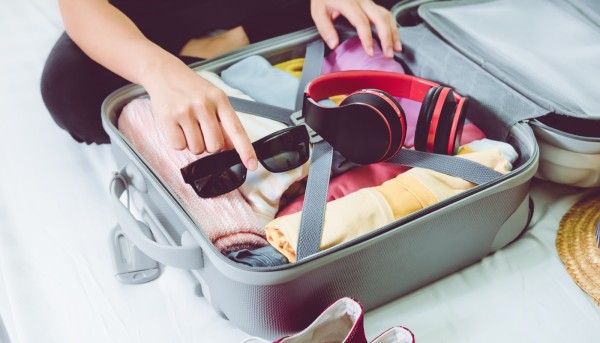Are you considering joining a study abroad program? It’s an exciting opportunity that can open doors to new experiences, new friends, and new horizons. Study abroad programs provide students with the chance to immerse themselves in different cultures and languages, gain international education, and enhance their personal and professional growth. But before embarking on this life-changing journey, it’s important to understand what study abroad programs entail and how to make the most of your experience. In this blog, we will explore the essential tips for study abroad programs, from choosing the right program to navigating cultural differences, and everything in between.
Understanding Study Abroad Program
Study abroad opportunities offer students the chance to travel to foreign countries for academic purposes, such as international study abroad programs, study abroad trips, or semester exchanges. These programs provide students with the opportunity to experience a new culture, learn a foreign language, and gain academic credit. From studying in England to Italy, there are study abroad programs available for students of all academic interests and backgrounds. Whether you’re interested in liberal arts, learning English, or business, studying abroad can enrich your education and broaden your perspective.
What makes a Good Study Abroad Program?
When considering study abroad programs, it’s important to choose one that meets your academic goals and offers a comprehensive cultural immersion experience. A good study abroad program provides opportunities for academic challenges while supporting students’ needs. It should offer high-quality education, ensuring that students receive academic credit for their courses. Additionally, a strong study abroad program facilitates meaningful interactions with local communities, allowing students to fully immerse themselves in a foreign culture. Safety and well-being are also important considerations, so it’s crucial to choose a program that prioritizes student safety.
Here are some factors that make a study abroad program exceptional:
- Comprehensive cultural immersion opportunities
- Meaningful interactions with local communities
- Emphasis on student safety and well-being
- Encouragement of independent exploration and self-discovery

Learn what makes a study abroad experience exceptional.
Types of Study Abroad Programs
Study abroad programs come in various formats, catering to different academic and personal preferences. Here are some popular types of study abroad programs:
- Semester Exchange Programs: These programs allow students to study at a partner university in a foreign country for a semester. It’s an opportunity to fully immerse yourself in a different academic environment and culture.
- Faculty-Led Programs: In these programs, courses are taught by instructors from your home university in a foreign location. This allows for continuity in education while still experiencing a new country.
- Internship Programs: Internship programs enable students to gain work experience in a foreign country while earning academic credit. It’s a great way to develop practical skills in a global setting.
- Language Immersion Programs: Language immersion programs focus on improving language skills through immersive experiences. Students get the chance to practice their language skills in real-life situations.
- Research Programs: Research programs provide students with the opportunity to conduct research projects in collaboration with international institutions or researchers. It’s a unique chance to contribute to the global research community.
- These different study abroad program options cater to varied academic goals, interests, and destinations, allowing students to choose what best aligns with their academic and cultural aspirations.

EducationFF offers immersive English Language learning experiences in the Uk, Malta, and Italy!
Importance of Studying Abroad
Studying abroad is more than just an academic experience. It is an opportunity to gain new perspectives, develop language competency, and broaden your horizons. International education offers countless benefits, both personal and professional. By studying abroad, you can immerse yourself in a new culture, make new friends, and learn new skills. It also gives you a chance to step out of your comfort zone and build your independence. Studying abroad enhances your resume, making you stand out in the job market and opening doors to international business opportunities.
Benefits of Studying Abroad
The benefits of studying abroad are far-reaching, shaping you both personally and professionally. Let’s explore some of the key benefits:
- New friends: Studying abroad introduces you to students from around the world, allowing you to form lifelong friendships and build a diverse network of international connections.
- New skills: You will develop valuable skills such as adaptability, problem-solving, cultural competency, and communication skills. These skills are highly sought after by employers.
- Cultural experience: Immersing yourself in a different culture allows you to gain a deep understanding and appreciation for new customs, traditions, and ways of life. It broadens your perspective and helps you develop intercultural competence.
- Personal growth: Stepping out of your comfort zone and navigating a foreign country on your own fosters personal growth. You learn to be independent, self-reliant, and open-minded.
- Enhanced resume: Employers value international experience, and studying abroad makes your resume stand out from the crowd. It shows that you are adaptable, resilient, and open to new experiences.

You can make friends from all over the world.
How Studying Abroad Enhances Your Career and University Prospects
Studying abroad not only enriches your personal growth but also enhances your career and university prospects. Here’s how studying abroad can boost your professional development:
- Gain a global perspective and cultural awareness: Experiencing different cultures and perspectives can help you develop a global mindset, essential in an increasingly interconnected world.
- Develop language skills and improve communication abilities: Studying abroad provides an immersive language learning experience, helping you become fluent in a foreign language. Strong language skills are highly valued in many professional fields.
- Build a strong network of international contacts: By studying abroad, you have the opportunity to connect with students, professors, and professionals from around the world. These connections can open doors to future job opportunities and collaborations.
- Enhance adaptability and problem-solving skills: Studying in a foreign country presents numerous challenges, from language barriers to cultural differences. Overcoming these challenges builds resilience, adaptability, and problem-solving skills.
- Increase job prospects and career opportunities: Employers value candidates with international experience, as it demonstrates cultural competence, independence, and the ability to work in diverse settings. A study abroad experience sets you apart in the job and university market.
- Studying abroad goes beyond academic education, providing you with valuable skills, perspectives, and experiences that will benefit your career and university applications in countless ways.

Your university application will stand out from the crowd with study abroad experience.
Preparing for a Study Abroad Program
Preparing for a study abroad program requires careful planning, research, and consideration. From choosing the right program to planning your study abroad budget, there are several factors to keep in mind. In this section, we will discuss essential tips for preparing for a study abroad program, including selecting the right program, planning your budget, and ensuring you have all the necessary items for studying abroad.
Choosing the Right Study Abroad Program
Choosing the right study abroad program is crucial to having a rewarding and enriching experience. Consider the following factors when making your choice:
- Right choice for you: Assess your academic goals, interests, and preferences. Consider the language of instruction, courses offered, and cultural opportunities available in different programs.
- Study period: Determine how long you want to study abroad, whether for a semester, a year, or a summer program. Be aware of the academic calendar and schedule of the program you choose.
- Eligibility: Check the eligibility criteria for each study abroad program. Some programs may have specific requirements, such as language proficiency or academic standing.
- Past student experiences: Research feedback and testimonials from past students who have participated in the program. Their experiences can give valuable insights into the program’s quality and support.
- Consider popular destinations: Popular study abroad destinations like Costa Rica, South Korea, or the Czech Republic offer unique experiences and support for international students.
- By carefully considering these factors, you can make an informed decision and choose a study abroad program that aligns with your academic goals and personal preferences.

Make sure you thoroughly research different study abroad options.
Planning Your Study Abroad Budget
Budgeting is an essential part of preparing for a study abroad program. Here are some tips to help you plan your study abroad budget effectively:
- Research financial aid options: Check if your home university offers financial aid or scholarships specifically for study abroad programs. Explore external scholarships and grants that support international education.
- Consider program costs: Study abroad program costs vary depending on the destination, program duration, and inclusions. Account for tuition, housing, meals, transportation, insurance, and additional expenses.
- Plan your travel expenses: Take into account the cost of international flights, visas, and travel insurance. Consider any additional travel you plan to do while studying abroad.
- Research cost of living: Research the cost of living in your study abroad destination. Consider housing, food, transportation, and other day-to-day expenses.
- Set a realistic budget: Calculate your available funds and set a budget that covers all necessary expenses. Leave room for unexpected expenses and emergencies.
- Remember, studying abroad is an investment in your education and personal growth. By planning your study abroad budget thoughtfully, you can ensure you have a comfortable and fulfilling experience without financial strain.

Make sure you save some extra money to account for any surprises on your trip!
Essential Items for Studying Abroad
When preparing for your study abroad program, it’s important to pack essential items that will help you navigate your new environment effectively. Here are some items to consider:
- Travel insurance: Ensure you have adequate travel insurance coverage for your study period. It will provide financial protection in case of unforeseen circumstances.
- Important documents: Carry your passport, visa, acceptance letter, and other necessary documents. Make copies and keep them in a separate location.
- Adaptor and converter: Research the electrical outlets in your study abroad destination and bring the necessary adaptors and converters for your electronic devices.
- Medications and prescriptions: If you have any medications or prescriptions, ensure you have enough supply to last your study period. Carry them in your carry-on luggage.
- Language support: Consider bringing language reference books, dictionaries, or online language support tools to aid your language learning.
- Comfort items: Pack photos or mementoes from home to make your new living space feel cozy and familiar.
- Reusable water bottle and tote bag: Having a reusable water bottle and tote bag can help you stay hydrated and reduce your environmental footprint.
- By packing these essential items, you’ll be well-prepared for your study abroad program and have everything you need to make your experience comfortable and enjoyable.

We have a great post on essential items for a summer study abroad holiday.
Making the Most Out of Your Study Abroad Experience
Studying abroad is not just about academic learning; it’s an opportunity for personal growth, cultural immersion, and broadening your horizons. Here, we will discuss how you can make the most out of your study abroad experience, from balancing studies and exploration to overcoming culture shock and maximizing learning opportunities.
Balancing Studies and Exploration
Balancing academic goals with exploration and cultural experiences is key to making the most out of your study abroad program. Here are some strategies to help you achieve this balance:
- Plan your schedule wisely: Create a study schedule that allows you to dedicate time to academic work while still leaving room for exploration and cultural activities.
- Utilize time management skills: Develop effective time management skills to make the most of your study period. Prioritize assignments, projects, and exams, ensuring you stay on top of your academic responsibilities.
- Set academic goals: Define academic goals for your study abroad program and work towards achieving them. This will help you stay focused while still enjoying new experiences.
- Attend language courses: If studying a foreign language, take advantage of language courses offered at your study abroad destination. It’s an excellent way to enhance your language skills and immerse yourself in the culture.
- Make the most of college study: Participate in cultural events, join student clubs, and engage with professors to deepen your understanding of the subject matter and connect with the local academic community.
- By finding the right balance between academic commitments and cultural exploration, you can have a fulfilling study abroad experience that enriches both your education and personal growth.

A study abroad holiday is as much about studying as it is having fun!
Overcoming Culture Shock
Experiencing culture shock is a common challenge when studying abroad, but with the right mindset and strategies, you can overcome it. Here are some tips to help you navigate cultural differences:
- Remain open-minded: Embrace the differences in the new culture, and approach them with curiosity and respect. Be willing to learn, adapt, and appreciate different customs and traditions.
- Seek support from fellow students: Connect with other study abroad students who are going through similar experiences. Share your challenges and seek advice on navigating cultural differences.
- Explore the local cuisine: Trying new foods is a great way to understand and appreciate a new culture. Explore local markets, restaurants, and street food stalls to experience the local cuisine.
- Engage in cultural activities: Participate in cultural exchange programs, festivals, and events to immerse yourself in the local culture. Take part in traditional ceremonies, arts, and cultural performances.
- Seek guidance from local resources: Reach out to local residents, study abroad program coordinators, or international student support services for guidance on cultural norms, traditions, and customs.
- By embracing cultural differences, seeking support, and actively engaging with the local culture, you can overcome culture shock and fully enjoy your study abroad experience.
Maximising Learning Opportunities
Studying abroad provides unique opportunities for academic and personal growth. Here’s how you can maximize your learning opportunities during your study abroad program:
- Participate in international internships: Look for opportunities to gain work experience in your study abroad country. Internships provide valuable practical skills and enhance your resume.
- Enroll in courses aligned with your academic interests: Take advantage of the diverse course offerings at your study abroad university. Choose courses that align with your academic goals and interests.
- Join study abroad programs with academic credit: Opt for study abroad programs that offer academic credit, ensuring that your study period contributes to your academic progress.
- Engage with professors: Build relationships with your professors by attending office hours, asking questions, and expressing your interest in the subject matter. These interactions can deepen your understanding of the coursework and open doors for academic opportunities.
- Immerse yourself in a different culture: Take every opportunity to engage with the local culture, whether through language exchange programs, cultural events, or cultural immersion activities. Immerse yourself in the culture to gain a new perspective.
- By actively seeking out and participating in these opportunities, you can make the most of your study abroad experience, both academically and personally.
Safety Considerations While Studying Abroad
Your safety and well-being should be a top priority while studying abroad. Being aware of safety considerations and taking necessary precautions can help ensure a smooth experience. In this section, we will discuss important safety considerations, including staying safe in a foreign country and health and insurance considerations.
Staying Safe in a Foreign Country
When studying abroad, it’s essential to take precautions to stay safe in your new environment. Here are some tips to help you stay safe:
- Use public transportation safely: Familiarize yourself with the public transportation system in your study abroad destination and be aware of your surroundings while using it.
- Avoid walking alone at night in unfamiliar areas: Travel in groups or use well-lit, populated routes when walking at night. Be aware of your surroundings and trust your instincts.
- Stay connected with your study abroad group: Keep in touch with fellow study abroad students, especially when exploring new areas or traveling. It’s important to have a support system in place.
- Be cautious when sharing personal information: Avoid sharing personal information, such as your address, phone number, or travel plans, with strangers you meet abroad.
- Secure your belongings: Keep your valuables, such as passports, wallets, and electronics, secure and be mindful of your belongings while in crowded areas or using public transportation.
- By following these safety tips and being aware of your surroundings, you can have a safe and enjoyable study abroad experience.

Keep safe on your study abroad trip.
Health and Insurance Considerations
Taking care of your health and having appropriate insurance coverage is essential when studying abroad. Here are some health and insurance considerations to keep in mind:
- Research public health in your study abroad country: Understand the public health system and any specific health risks or vaccinations required in your study abroad country.
- Carry necessary medications and prescriptions: If you have any existing health conditions, make sure you have an ample supply of medications for your study period. Carry them in your carry-on luggage.
- Obtain health insurance coverage: Look into international health insurance options that provide coverage for medical emergencies abroad. Ensure that the coverage is comprehensive, including medical evacuation if needed.
- Visit a healthcare provider for vaccinations: Check with a healthcare provider or travel clinic for any pre-travel vaccinations required for your study abroad country.
- Maintain a healthy lifestyle: Prioritize your well-being by eating nutritious food, exercising, and getting plenty of rest. Take care of your mental health, too, by seeking support if needed.
- By taking care of your health and having appropriate insurance coverage, you can study abroad with peace of mind knowing that you are prepared for any health-related concerns.

Make sure you research the requirements for the country you are going to before purchasing health insurance.
Life After Your Study Abroad Program
Your study abroad experience doesn’t end when you return home. It has a lasting impact on your personal and professional life. In this section, we will explore how you can apply your study abroad experience to your career and university applications, and maintain international connections.
Applying Your Study Abroad Experience to Your Career
Your study abroad experience can be a valuable asset in your career and education. Here’s how you can apply your study abroad experience:
- Highlight your study abroad experience on your resume or university application: Emphasize the skills, cultural competency, and independence gained during your study abroad program. Employers and Universities value international experience.
- Discuss how your international connections have influenced your career goals: Show how networking with students, professors, and professionals from around the world has shaped your career aspirations and provided new perspectives.
- Seek out job opportunities or universities that value cross-cultural competencies: Look for job opportunities and universities that explicitly value international experience, cultural competency, and language skills.
- Utilize the skills gained during your study period: Whether it’s adaptability, problem-solving, or intercultural communication, utilize the skills you gained abroad to excel in your career and education.
Maintaining International Connections
Maintaining international connections is a great way to continue benefiting from your study abroad experience. Here are some tips on staying connected:
- Stay in touch with friends made during study abroad: Use social media, email, or video calls to stay connected with the friends you made during your study abroad program. Nurture those relationships.
- Foster relationships with international colleagues: Collaborate on projects, stay connected through professional networks, and seek opportunities for further collaboration with international colleagues.
- Use social media platforms: Connect with study abroad alumni, professors, and professionals through social media platforms dedicated to international education and cultural exchange.
- Attend alumni events: Alumni events provide opportunities to reunite with fellow study abroad participants and build new connections with study abroad alumni from different programs and destinations.
- Collaborate on international projects: Use your international connections to work on international projects, collaborate on research, or develop initiatives with individuals you met abroad.
- Maintaining international connections allows you to continue fostering a global perspective, share experiences, collaborate, and stay engaged in the international community even after returning from your study abroad program.

Your study abroad experience never ends!
Do You Feel Ready to Embark on Your Study Abroad Journey?
After exploring the essential tips for study abroad programs, reflecting on the benefits, and hearing stories from study abroad alumni, it’s time to ask yourself, “Do I feel ready to embark on your study abroad journey?” Studying abroad is an incredible opportunity for personal growth, education, and cultural immersion.
Amazing Study Abroad in England Programs
Are you looking for a study abroad in England trip provider that goes beyond language learning? At Education FF, we believe in cultivating core values that shape young individuals into global citizens.
Our centers in the United Kingdom, Malta, and Italy focus not just on language skills, but also on building integrity, trust, honesty, and respect in our students. We want to empower them to become well-rounded individuals who can make a positive impact on the world around them.
In transmitting these values, we think primarily of young people, pushing them towards continuous improvement that leads them to build healthy self-esteem. We have a decades-long track record of providing world-class study abroad in England programs with a very high student and parent satisfaction rate.
If you’re an agent looking for a reliable and competent partner with a top product, or you’re a teacher looking for a summer travel program for your students, please get in touch with us. We would be happy to tell you more.





